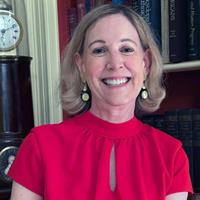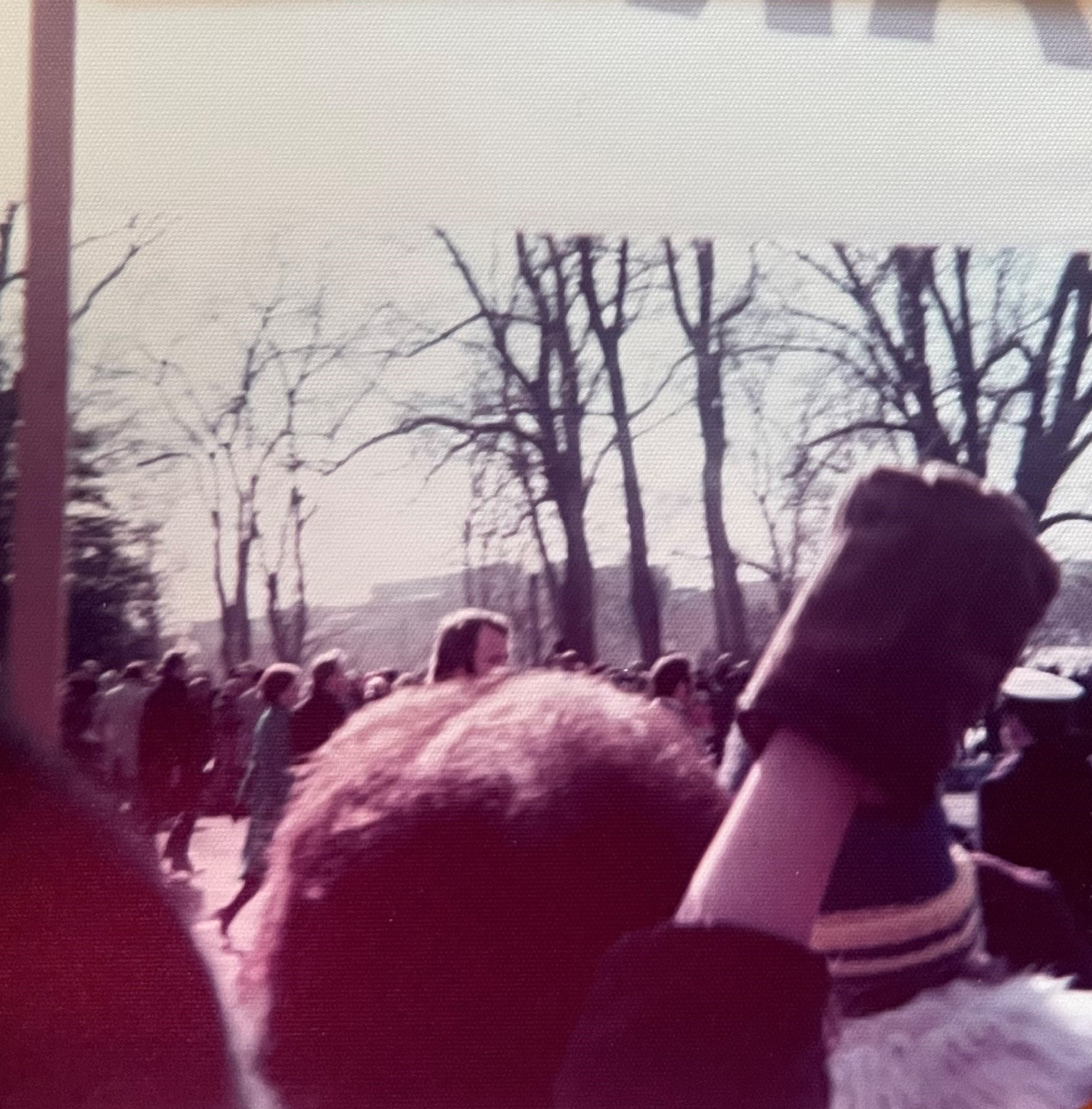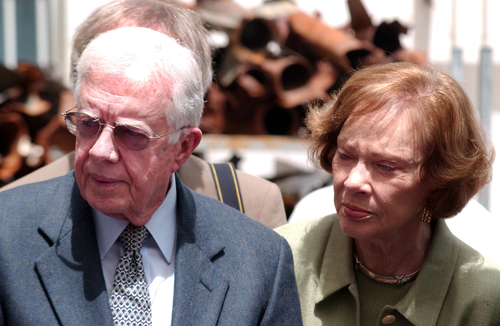How Rosalynn Carter Avoided First Lady Pitfalls
 Barbara A. Perry is the Gerald L. Baliles Professor of Presidential Studies and Co-Director of the Presidential Oral History Program at UVA’s Miller Center. She is a scholar of presidential spouses and a life member of the First Ladies Association for Research and Education (FLARE). She has spoken twice at the Carter Center in Atlanta, on First Lady Jacqueline Kennedy and presidential mother Rose Kennedy.
Barbara A. Perry is the Gerald L. Baliles Professor of Presidential Studies and Co-Director of the Presidential Oral History Program at UVA’s Miller Center. She is a scholar of presidential spouses and a life member of the First Ladies Association for Research and Education (FLARE). She has spoken twice at the Carter Center in Atlanta, on First Lady Jacqueline Kennedy and presidential mother Rose Kennedy.
When Jimmy Carter’s father died in 1953, leaving the family’s peanut farm without a proprietor, the future president, an Annapolis graduate, left active duty in the nuclear Navy and returned home from his educational assignment in Upstate New York to take over the agricultural venture.
Rosalynn Carter would tell the story about how she refused to speak to her husband on the long drive back to Georgia, for she feared he had committed a major career blunder. Besides, why would she want to return to the Peach State’s outback, when life as a Navy wife had been much more exciting, including a stint in Hawaii.
How wrong she was about the couple’s future. They grew peanuts, as well as a successful agricultural enterprise, and then turned their partnership toward state politics, starting with a victory for Jimmy in his first Georgia senate race. By 1971, the Carters had moved into the governor’s mansion and miraculously transformed the relatively unknown Georgia governor into the 1976 Democratic presidential nominee.
As it turned out, the Carters’ small-town values, combined with a moderately progressive, “New South” pedigree, were just the tonic for countering a Watergate-weary Nation and the Democrats’ desire to avoid their 1972 landslide defeat to President Richard Nixon, with liberal Senator George McGovern at the top of the ticket.

hand in hand, on that freezing Jan. 20, 1977.
This moderation toward public life would stand new First Lady Rosalynn Carter in good stead. The pitfalls for a presidential spouse are numerous. No official position of First Lady exists. As Jacqueline Kennedy, a skilled equestrian scoffed, the title sounds like the name of a “saddle horse”! Moreover, there is no salary or manual for serving in the position, which often has been ceremonial, as a helpmate to the president’s role as head of state. Yet, the U.S. president is also the head of government and initiator of policy proposals, especially in the modern era. Should his wife participate in that duty?
Eleanor Roosevelt and Hillary Clinton clearly believed the answer was yes. FDR’s wife served as his roving observer, traveling when he could not because of his polio-afflicted legs and later his terminal congestive heart failure. Mrs. Roosevelt, because she never appeared on a ballot, took more progressive stands than her husband, especially on race. When running for president in 1992, Bill Clinton declared that voters would get a “twofer” because he and Hillary were policy experts.
American voters, however, take a wary view toward unelected and unaccountable presidential spouses serving as active policy advocates and implementors in the White House. Mrs. Carter skillfully discovered a mid-point between Eleanor’s and Hillary’s advocacy, which many Americans disliked, and more traditional First Ladies’ passivity toward domestic and foreign policy. Bess Truman, Mamie Eisenhower, Jackie Kennedy, and Pat Nixon fall into that latter category.

Instead, Rosalynn Carter declared that she wouldn’t be a traditional First Lady, but she collaborated with her husband to find those roles that were both meaningful yet less controversial to the body politic. Her primary priority, mental health care, seemed both an element of what political scientists call “soft power” and avoided obviously gendered outcomes. Through chairing the President’s Commission on Mental Health and testifying before Congress on the topic, she made her voice heard with a southern lilt, rather than a shrill tone.
Latin America has often been the poor relation to its northern neighbors, but President Carter named his wife an envoy to travel through the region in 1977, representing him and returning from her fact-finding mission with helpful observations. That year she scored a 69 percent approval rating. Even as her husband’s presidency sank amidst the sour economy and Iranian hostage crisis, until he landed at 32 percent approval, Mrs. Carter maintained a 59 percent rating. Contemporary chief executives would love to achieve such a figure.
The cleverest partnership between the Carters was the president’s invitation to the First Lady to attend his Cabinet meetings so that she could speak informedly about his administration’s policies when she traveled at home and abroad. The happy medium in this arrangement, Mrs. Carter later reported, was that she didn’t speak at the meetings but took notes for her own education.
When my older brothers and I started high school, my mother, a self-improvement advocate, purchased a set of World Book encyclopedias to assist us in those pre-internet days with school homework. Only when I, the last of the brood, graduated from college, did she stop purchasing the World Book’s updated volume each year. I still have those tomes, and the 1978 version’s entry for Jimmy Carter contains only one photo: First Lady Rosalynn Carter embarking on her good-will tour of Latin America. Knowing that the Carters are firm believers in the afterlife, I hope her final journey to the Great Beyond is as edifying, until her husband of seventy-seven years joins her there.
- Guastavino Tile at the University of Virginia
- Abraham Lincoln on Character, Leadership and Education
- Silence is Golden: Celebrating the History of Silent Films
- Virginia Club of New York x The Essay Conqueror: The College Essayscape
- UVA Club of Los Angeles: Influential Communication
- UVA Club of Washington DC: Hoos in Their Homes